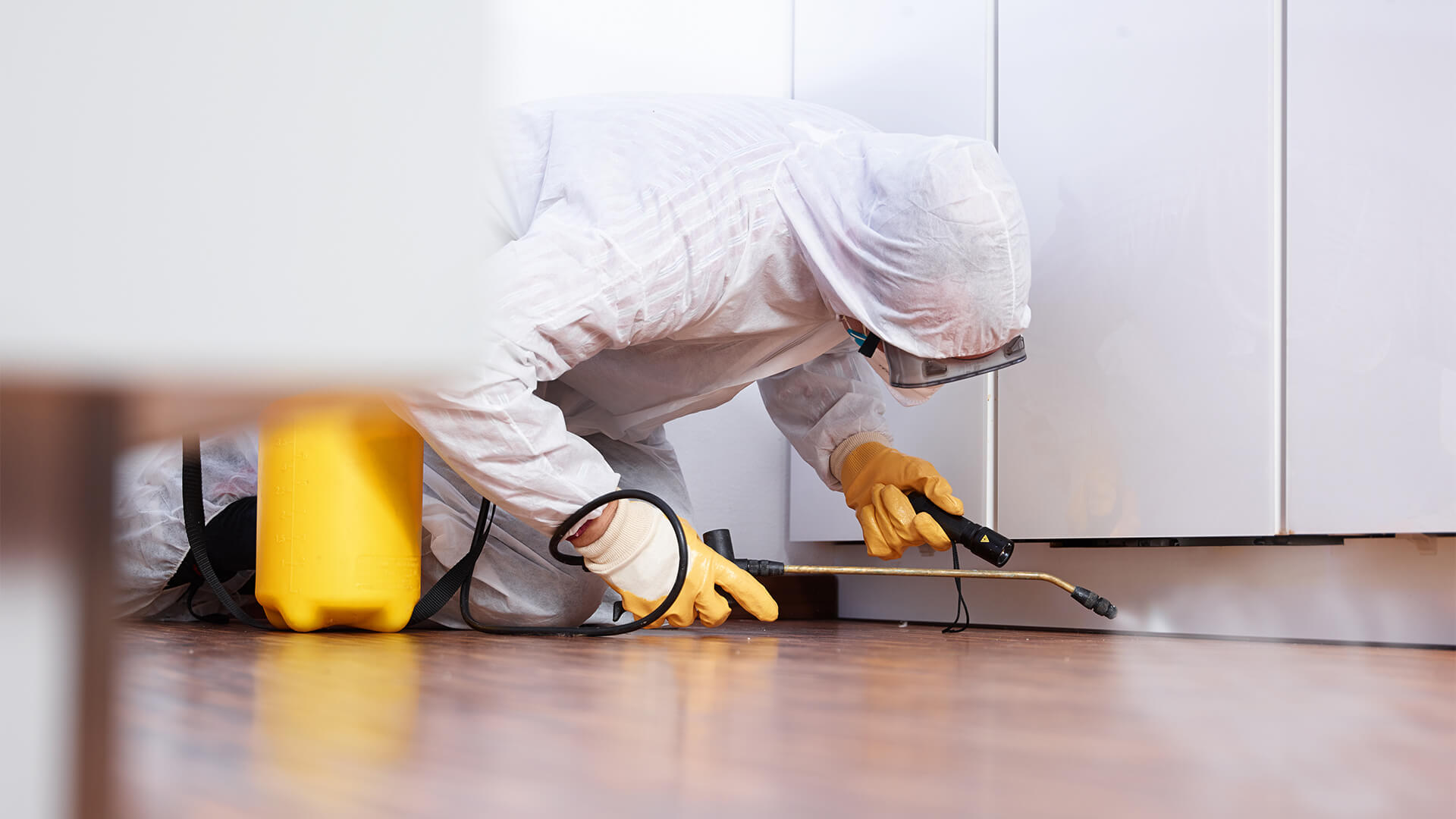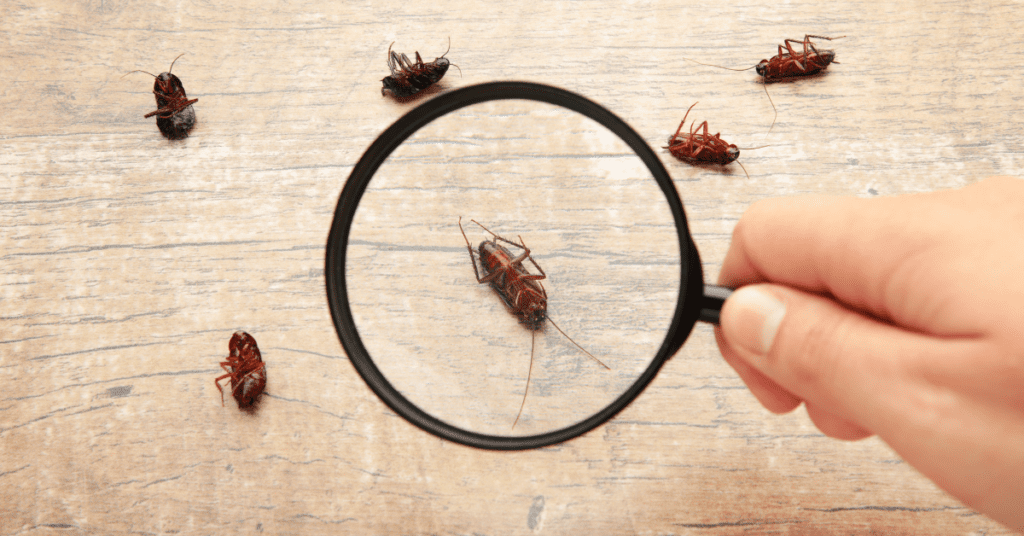Safe and Trusted Bug Control for Lasting Protection
The significance of trusted and risk-free pest control can not be overemphasized, particularly in a period where environmental concerns are vital. Effective bug administration calls for a multifaceted technique that stabilizes environmental honesty with the need for reliable parasite suppression. By discovering eco-friendly options and integrated parasite management methods, property owners can attain lasting security versus intrusive varieties while safeguarding valuable ecological communities. The nuances of these techniques might not be quickly clear, triggering a more detailed evaluation of the techniques that can lead to lasting insect control results. What actions can be required to ensure both safety and effectiveness in bug monitoring?
Recognizing Bug Control Approaches
Bug control includes a variety of approaches focused on managing and eradicating undesirable bugs and rats that can intimidate both health and wellness and home. Recognizing these techniques is important for effective bug administration.
The main classifications of parasite control techniques include mechanical, biological, and chemical strategies. Mechanical approaches entail physical barriers and traps to stop pest access and capture undesirable types. Utilizing screens on windows or using sticky traps can substantially lower insect populaces without introducing dangerous substances - exterminator coquitlam.

Chemical insect control is often the most identified approach, making use of pesticides to get rid of bugs. These chemicals can be effective however have to be used with caution to prevent adverse effects on non-target types and the setting.
Advantages of Eco-Friendly Solutions
How can environmentally friendly services transform parasite control methods? The adoption of environmentally friendly insect control methods provides countless advantages, dramatically enhancing the performance and security of pest monitoring.

One more benefit is the favorable influence on regional biodiversity. Eco-friendly services are created to target specific bugs while preserving helpful pests and wild animals, promoting a balanced ecosystem. This technique straightens with the expanding consumer demand for sustainable methods, boosting the credibility of bug control companies.
Integrated Parasite Monitoring Strategies
The implementation of environmentally friendly services normally brings about the adoption of Integrated Parasite Management (IPM) strategies, which even more improve parasite control effectiveness. IPM is an all natural approach that integrates several techniques to handle insect populations while reducing environmental effect. This method highlights using biological, cultural, mechanical, and chemical controls, guaranteeing a balanced and sustainable approach of bug administration.
One fundamental facet of IPM is the thorough assessment of parasite task and environmental conditions. By monitoring pest populaces and recognizing their life process, specialists can execute targeted treatments that interfere with the insect's habitat or lifecycle, reducing dependence on chemical pesticides. Furthermore, cultural techniques such as plant rotation and environment control can significantly diminish insect facility and reproduction.
Another crucial part is the use of organic control agents, such as advantageous insects or microbes, which can naturally subdue bug populations. When chemical applications are needed, IPM prioritizes the usage of low-risk pesticides and uses them selectively, minimizing exposure to non-target organisms and human beings.
Integrating IPM strategies not just improves bug control efficiency however additionally promotes a much safer community, aligning with the growing need for sustainable methods in bug management.
Safe Practices for House Owners
Understanding the significance of secure practices in insect control can empower home owners to efficiently handle parasite issues while protecting their health and the environment. Carrying out preventative measures and non-toxic approaches is crucial in decreasing direct exposure to hazardous chemicals.
Property owners should first evaluate their atmosphere for problems that draw in insects, such as standing food, clutter, and water waste. Consistently cleaning and sealing entry factors can deter pests from attacking the home. Using natural deterrents, such as crucial oils or diatomaceous planet, can supply efficient options to chemical pesticides.
When chemical treatments are essential, house owners must select products that are especially classified as safe for household use. It is important to adhere to application standards thoroughly to prevent overexposure. In addition, utilizing targeted treatments in locations where recommended you read bugs are recognized, as opposed to blanket splashing, can substantially reduce chemical usage.
Last but not least, preserving open communication with insect control specialists is important. Homeowners must inquire concerning the safety of items made use of and request environment-friendly options whenever possible. By taking on these secure methods, homeowners can produce a much healthier living environment while properly managing bug issues.

Tips for Long-Term Defense
Establishing a bug management method that stresses long-term protection pest control service provider can substantially enhance the effectiveness of the secure practices previously gone over. To attain this, homeowners ought to carry out normal examinations of their home, concentrating on concealed locations such as attic rooms, cellars, and crawl spaces. Early detection of bug task is essential in protecting against problems from taking hold.
Additionally, keeping a clean atmosphere is essential. This consists of correct food storage space, promptly cleaning spills, and routinely dealing with trash. These methods decrease attractants that draw pests into the home. Securing entrance points, such as cracks around windows and doors, can effectively block potential pest gain access to.
Landscape design ought to also be considered; maintaining plants trimmed and maintaining a range in between plants and the home lessens hiding places for parasites. Utilizing natural deterrents, such as vital oils or diatomaceous earth, can additionally dissuade problems without turning to harsh chemicals.
Last but not least, working together with a specialist bug control service for regular evaluations can give an additional layer of security. These professionals can offer customized recommendations and progressed treatments, making sure that your home remains protected versus insects in the lengthy term.
Conclusion
To conclude, trusted and risk-free parasite control needs a multifaceted strategy that stresses green techniques and integrated pest administration. By executing all-natural deterrents, carrying out routine inspections, and maintaining proper cleanliness, residential property proprietors can substantially lower pest populations while securing beneficial bugs and the Related Site setting. Partnership with specialist parasite control services boosts the effectiveness of these approaches, guaranteeing customized solutions that supply long lasting defense and comfort against future infestations.
Efficient parasite administration needs a diverse technique that balances environmental stability with the need for efficient pest suppression. The adoption of eco-friendly parasite control approaches uses many benefits, dramatically enhancing the effectiveness and security of parasite monitoring.The execution of green remedies normally leads to the adoption of Integrated Insect Management (IPM) strategies, which further boost parasite control efficiency. exterminator coquitlam. By monitoring parasite populaces and identifying their life cycles, practitioners can implement targeted treatments that disrupt the parasite's environment or lifecycle, decreasing reliance on chemical pesticides.In verdict, safe and reliable parasite control needs a complex strategy that emphasizes green methods and integrated bug monitoring